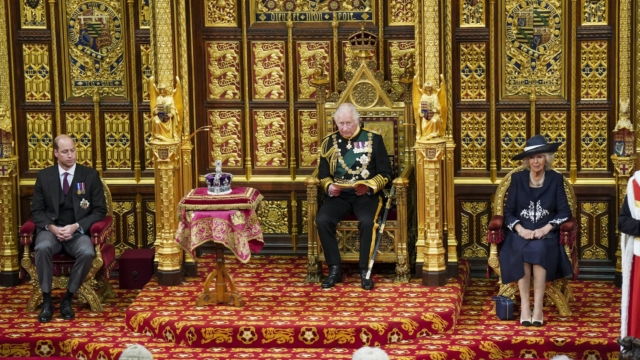Attached a copy of the lobby pack that supports the Queen’s speech. Here are some…
COVID-19 Update 15th March 2021
- Revised Primary Guidance for Tourism and Hospitality Businesses
The Primary Guidance on Working Safely During Coronavirus for different components of the Tourism Industry has been updated to take account of changes in Rules associated with Step one of the Government’s Roadmap. I’ve been though the guidance and highlighted the key changes to be aware of.
Visitor Economy Guidance
-
- In-person meetings for work, training or education purposes should only take place where they cannot be delayed or reasonably be conducted remotely. If you intend to host these types of meetings in your facility, you must be able to demonstrate that you have followed this COVID-19 guidance and that social distancing can be maintained throughout the event. You can find more information in the section on business meetings and events.
- Permitted venues, including exhibition and conference centres, can hire out function and event spaces for essential work, education and training, where these events cannot reasonably be conducted remotely. However, you must not host conferences, exhibitions, trade shows, private dining events or banquets. You can find more information in the section on business meetings and events.
- Some outdoor spaces at visitor attractions can be visited for the purposes of exercise and recreation (for example, for a picnic), where they are public outdoor places. Visitors must adhere to the rules on social contact (see below) but can travel a short distance within the local area if necessary (for example, to access an open space). This applies to outdoor locations at visitor attractions such as sculpture parks, botanical gardens, biomes or greenhouses, landmarks, and heritage locations including historic parks, gardens, landscapes, ruins and monuments open to the elements, even where entry is paid for. Those outdoor venues and attractions that are permitted to remain open can offer food and (non-alcoholic) drinks as a takeaway service. You can find more information in the section on changes to facilities and services.
https://www.gov.uk/guidance/working-safely-during-coronavirus-covid-19/the-visitor-economy
Heritage Locations
-
- Some outdoor heritage locations can be visited for the purposes of exercise and recreation (for example, for a picnic), where they are public outdoor places. Visitors must adhere to the rules on social contact (see below) and should stay local (within the village, town, or part of the city where they live) but can travel a short distance within the local area if necessary (for example, to access an open space). Where possible, you should minimise travel. This applies to outdoor heritage locations including cultural World Heritage Sites and historic parks, gardens, landscapes, ruins and monuments open to the elements, even where entry is paid for.
- Those outdoor venues that are permitted to remain open can offer food and (non-alcoholic) drinks as a takeaway service.
- Indoor locations, such as roofed and enclosed historic buildings remain closed, although any grounds including car parks and toilets can remain open, where they can be accessed separately to the indoor attractions.
- Visitor centres remain closed, at both indoor and outdoor heritage locations. Toilets may remain open.
- Events and meetings: Permitted venues, including exhibition and conference centres, can hire out function and event spaces for essential work, education and training purposes, where these events cannot reasonably be conducted remotely. However, they must not host conferences, exhibitions, trade shows, private dining events or banquets. You should check the guidance for the Visitor Economy and ensure you adhere to any relevant measures. You can find more information in the section on meetings and events.
- Weddings/civil partnerships and funerals: Weddings and civil partnerships are only permitted in exceptional circumstances. You should check the guidance on wedding and civil partnerships receptions and celebrations and funerals and ensure you follow any relevant measures. You can find more information in the section on meetings and events.
https://www.gov.uk/guidance/working-safely-during-coronavirus-covid-19/heritage-locations
Hotels and Guest Accommodation
-
- Events and meetings: permitted venues, including exhibition and conference centres, can hire out function and event spaces for essential work, education and training purposes, where these events cannot reasonably be conducted remotely. However, they must not host conferences, exhibitions, trade shows, private dining events or banquets. You should check the guidance for the Visitor Economy and ensure you adhere to any relevant measures. You can find more information in the section on business meetings and events.
- Weddings/civil partnerships and funerals: Weddings and civil partnerships are only permitted in exceptional circumstances. You should check the guidance on wedding and civil partnerships receptions and celebrations and funerals and ensure you follow any relevant measures. You can find more information in the section on meetings and events.
- Hospitality: there are restrictions on how you provide food and drink, and hospitality facilities (such as restaurants, bars and pubs) in your venue must remain closed, with the exception of providing food and non-alcoholic drinks for takeaway (until 11pm), click-and-collect and drive-through. All food and drink (including alcohol) can continue to be provided by delivery. You can find more information in the section on hospitality (food and drinks), and the guidance for restaurants, pubs, bars and takeaway services.
- Certification Consultation
One of the four reviews that the Government announced on 22nd Feb to sit alongside the Roadmap as on the use of Certification. The government is reviewing whether COVID-status certification could play a role in reopening our economy, reducing restrictions on social contact and improving safety. Such certification would be available both to vaccinated people and to unvaccinated people who have been tested. As part of this the Government is undertaking a short, 2 week consultation the ethical, equalities, privacy, legal and operational aspects of a potential certification scheme, and what limits, if any, should be placed on organisations using certification.
- Further Details on Wedding Reopening
- Step 1 – 8 March
Weddings of 6 can happen but these should only be in exceptional circumstances. Receptions are not permitted.
-
- Step 1a – 29 March
Weddings of 6 can happen (with no requirement for this to be in exceptional circumstances). Receptions can only take place in line with social contact limits (i.e. outdoors in a group of six, or two households).
-
- Step 2 – 12 April
Weddings and receptions are permitted for up to 15 people.
-
- Step 3 – 17 May
Weddings and receptions can proceed with up to 30 people. A broader range of stand-alone life events will also be permitted at this step, including bar mitzvahs and christenings.
-
- Step 4 – 21 June
Ahead of this date, the Government will launch the Events Research Programme, to consider how and when restrictions can be lifted from large events including wedding receptions.
- Budget Debate
There was a budget debate in the Lords on Friday at which Baroness Doocey again raised the issue of support for tourism businesses that have so far fallen through the cracks in terms of support (I’ve attached a copy of her speech). She is following up on this with Lord Agnew so I will let you know of the outcome of this.
- Bus Back Better
The Government has published it’s long-term national bus strategy for England (excluding London). The strategy aims to reform of how bus services are planned and delivered. The core of the strategy for every local transport authority and bus operator in England to be in a statutory enhanced partnership or a franchising arrangement. The Government will make £25 million available for these to be developed and to produce Bus Service Improvement Plans by the end of October 2021. These plans are to set out a roadmap to better services for passengers and communities, urban and rural, and be driven by local needs. The strategy also includes a commitment to consult on ending the sale of new diesel buses by 2030 and the announcement that 17 rural and suburban communities will receive £20 million from the government’s Rural Mobility Fund to trial on-demand services that are able to get closer to where people live and at a time convenient for them.
- CMA Analysis of Complaints and Activities
The CMA has produced an analysis of the complaints that it has received during the outbreak. The two most significant sources of complaint being price increases and cancellations and refunds – which have accounted for the majority of complaints since March 2020. These complaints peaked at 22,500 complaints in May before rapidly dropping off and have remained level at around 2,000 complaints a month since October 2020. In terms of value, weddings accounted for only 2,400 complaints but the average value of the complaint was very high at £6,500. Due to the level of these complaints, the CMA’s activities have on various components of the tourism industry and the report highlights the actions that have been taken in respect to Holiday companies, airlines, wedding organisers and holiday letting firms.


